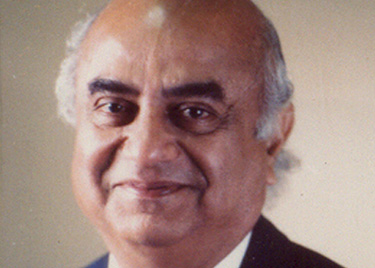Six decades and nine years after his assassination in 1948, Gandhi’s importance as the tallest leader of the modern world remains relevant. Professor Gene Sharp described Gandhi “as a resonant symbol of one of the most important phenomena of modern history, the simultaneous assault on colonialism and the oppression of individuals, which has transformed much of the 20th century world.”
His statues adorn high pedestals in over a hundred countries. Even England, whose colonial rule he ended in India, has honoured Gandhi with a statue at the iconic Parliament Square in London where it stands alongside Winston Churchill who once called him a “half-naked fakir”. There are Gandhi Centres or Ashrams in over thirty countries around the world.
Gandhi was a prolific letter writer. He would write to just about everybody from the highest to the humblest. His unpublished letters, when put up for auction by Southebys or Christies or at other leading auctioneers in England, France, USA or other countries set the auction world abuzz and fetch huge sums.
 R.K.Puri
R.K.Puri
Gandhi wrote two letters to the German Fuehrer Adolf Hitler, one in 1939 and the other in 1941, addressing him as “My dear friend” and asking him to shun violence and prevent war. He wrote to Hitler: “You are leaving no legacy to your people of which they will feel proud. They cannot take pride in the recital of cruel deed however skillfully planned.”
He also wrote to President Roosevelt in 1942 suggesting that if the Allies think it necessary, they may keep their troops in India at their expense, not for keeping internal order but for preventing Japanese aggression and defending China. So far as India is concerned, she must become free even as America and Britain are. It is on behalf of this proposal that “I write to enlist your support”, he wrote.
The volume of over 260 letters, which Gandhi wrote to his friend Kallenbach in South Africa, created a sensation in the auction world when Southebys put them up for auction in 2012. The Indian government paid around £1 million for the ‘Kallenbach Collection’ because of their historic significance in researching the gradual formulation of Gandhi’s powerful concepts of satyagraha and non-violent way of protesting against injustices.
During their preparations for ‘Freedom at Midnight’, Larry Collins and Dominique Lapierre, the French authors, held extensive interviews with Lord Mountbatten over the years 1971, 1972 and 1973. They have published the complete record of the interviews in another book titled “Mountbatten and the Partition of India”. In this book they have mentioned about the access given to them to the personal archives of the last Viceroy of India in the library of his country home ‘Broadlands’.
Here, they chanced upon a veritable treasure trove of Gandhi’s handwritten notes in one of the cabinets. It was full of heaps of old, torn envelopes covered with penciled writing. Looking at their astonished faces, Mountbatten revealed to them that “the author of these messages was none other than Gandhi”.
They have described a marvelous story shared with them by Lord Mountbatten: “When I landed in New Delhi on March 22, 1947 to find an urgent solution to the subcontinent’s dilemma, I immediately understood that nothing could ever be achieved in India without Gandhi’s consent. He was in fact the key to the problem. I then learned something extraordinary—each Monday the Mahatma would observe a day of silence to purify his vocal chords.”
Mountbatten saw in this practice a sign of his good fortune and took an immediate decision to engage his negotiations with Gandhi on Mondays only. But the old Mahatma was prepared for all eventualities. Tucked in his dhoti, he kept a stack of old envelopes. When he felt the least disagreement over something Mountbatten was saying, he hurried to scribble a message on one of his old envelopes and hand it, over to him.
Twenty-five years later in the Broadlands basement library, Larry Collins and Dominique Lapierre had an opportunity to look at these historical messages which “constituted an invaluable source of information on the father of the nation’s feelings and inner thoughts at the most critical juncture of modern Indian history”.
The importance of being Gandhi has been best described by Professor Mary E. King, the author of Mahatma Gandhi and Martin Luther King Jr: The Power of Nonviolent Action in the following words: “As long as there is strife, hostilities, ethnic cleansing, religious unrest, internal conflicts and threats of military occupation, people will turn to Gandhi. His usefulness will not end unless conflict ceases”—the importance of being Gandhi is enduring.
(The author is a retired civil services officer)




